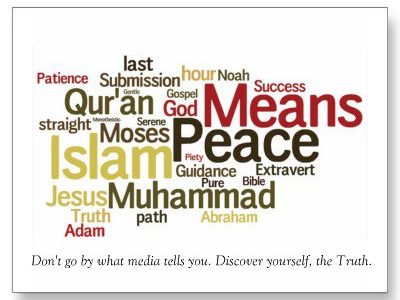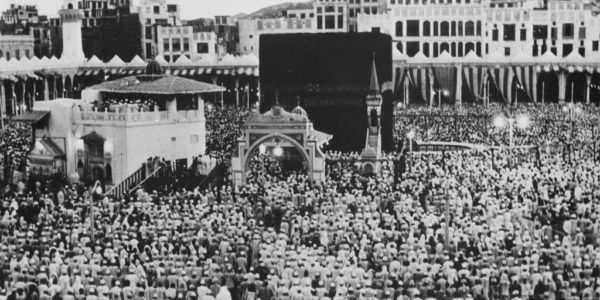The People Who reject Ahadith
The People Who Reject Ahadith
Alhamdulillah that it is well known, these DEVIANTS, astray & taking others astray, are easy to identifiy by their attacking comments on social media. They are EASY to refute & they have been refuted profoundly throughout the Muslim world.

By Nerd of Islam
There are some “Muslims” in our times who follow a recent new movement (19th-20th century) which rejects hadiths, hence, deviating from the path of mainstream Islam. They pose and comment on many issues related to Islam from their viewpoint and reject many fundamental aspects of our religion. Worst of all, they try to present their views as the mainstream opinion. It should be made clear that they do not represent mainstream Islam or Muslims in any way or form. The ummah (nation) of Muhammad (pbuh) accepts the Qur’an and hadiths as legitimate forms of sources for deriving Islamic laws. We, the mainstream Muslims, acknowledge that both, the Qur’an and hadiths, are a guidance from Allah.
Their History
During the colonial period, when most of the Muslim world came under the subjugation of the West, some “scholars” arose in places like Egypt (Taha Hussein), India (Abdullah Chakralawi and Ghulam Ahmed Pervaiz), and Turkey (Zia Gogelup), who began questioning the authenticity and relevance of hadith. It was not that some genius had found flaws in the hadith study that had eluded the entire ummah for thirteen centuries. It was simply that the pressures from the dominant Western civilization to conform were too strong for them to withstand. They buckled. Prophetic teachings and life example — Hadith — was the obstacle in this process and so it became the target.
About Their Movement
It is a movement that holds the Qur’an to be the most authentic criterion in Islam. Quranists (a common name for them) generally reject the religious authority of Hadith (cataloged narratives of what the Prophet Muhammad is reported to have said and done), as they consider it inconsistent with the Qur’an. This in contrast to the Sunni, Shia and Ibadi doctrines which consider hadiths essential for the Islamic faith.
However, we the mainstream Muslims (whose ideology has existed since the time of the Prophet) believe that hadiths are necessary and are a legitimate form of extraction for divine guidance. We believe that Qur’an and hadiths go hand in hand and one explains the other. The Qur’an is general and the sunnah is specific and detailed. Hadiths are the interpretation of the Qur’an by the Prophet (pbuh). The Quranists’ rejection of hadiths have led them to turn the Qur’an into a toy which they interpret based on their own intellect and desires. The hadiths, the mainstream Muslims say, preserve the meaning of the Qur’an. This is why Allah tells us in the Qur’an [meaning of which is]:
And We revealed to you [O Muhammad] the message [Qur’an] that you may make clear to the people what was sent down to them and that they might give thought. [Qur’an 16:44]
His HADITHS are that clarification!
There are also numerous verses in the Qur’an where Allah specifically commands the Muslims to obey the Prophet Muhammad (pbuh), for example:
And We did not send any messenger except to be obeyed by permission of Allah. [Qur’an 4:64]
But no, by your Lord, they will not [truly] believe until they make you, [O Muhammad], judge concerning that over which they dispute among themselves and then find within themselves no discomfort from what you have judged and submit in [full, willing] submission. [Qur’an 4:65]
He who obeys the Messenger has obeyed Allah; but those who turn away – We have not sent you over them as a guardian. [Qur’an 4:80]
And when it is said to them, “Come to what Allah has revealed and to the Messenger,” you see the hypocrites turning away from you in aversion. [Qur’an 4:61]
Just as We have sent among you a messenger from yourselves reciting to you Our verses and purifying you and teaching you the Book and wisdom and teaching you that which you did not know. [Qur’an 2:151]
The above verses show that the Messenger (pbuh) plays a big role in addition to the Qur’an. This is how the companions of the Prophet Muhammad (pbuh) understood the religion as well. They understood that not everything is in the Qur’an. For example, it is narrated from Abdullah bin Khalid that he said to Abdullah bin Umar, a companion of Muhammad (pbuh) and the son of the second caliph of Islam:
“We find (mention of) the prayer of the resident and the prayer in a state of fear in the Qur’an, but we do not find any mention of the prayer of the traveler. Abdullah said to him: ‘Allah sent Muhammad (pbuh) to us, and we did not know anything, rather we do what we saw Muhammad (pbuh) doing.” (Reported by Ibn Majah, Ibn Qayyim said it is authentic)
The prophet (pbuh) warned us against them in a hadith which they of course deny:
“Soon there will come a time that a man will be reclining on his pillow, and when one of my hadiths is narrated he will say: ‘The Book of Allah is (sufficient) between us and you. Whatever it states is permissible, we will take as permissible, and whatever it states is forbidden, we will take as forbidden.’ Verily, whatever the Messenger of Allah has forbidden is like that which Allah has forbidden.”(Reported by Ahmad, Abu Daawood, Ibn Maajah and at-Tirmidhee, who declared it hasan. Al-Albaanee declared it saheeh in Saheehul-Jaami’ (no.8186))
Now, in my discussion with some of them, they will acknowledge that yes even the companions of Muhammad (pbuh), who saw, lived, learned, and met the last prophet himself, did not reject hadiths as a whole (they may differ on or doubt individual hadiths) but rather followed them and derived rulings from them. So what’s the problem? Their response: “Brother, they were just human beings and made mistakes. We shouldn’t accept it just because they did it.” Just think about that for a moment. The very people who were extremely involved with the Prophet Muhammad (pbuh) on a daily basis and learned directly from him were somehow collectively mistaken on the issue of following hadiths. I mean we have direct quotes from them acknowledging the sunnah and their strong desire to follow it to the best of their ability for God’s sake! Wouldn’t the Prophet Muhammad (pbuh) have clarified to them to follow the Qur’an alone and not his hadiths? But somehow they were all wrong and this newly formed sect from the colonial period figured it all out. Completely absurd.
















Their Hypocrisies
These hadith rejectors will criticize the sunnis for relying on hadiths while it was these same sunnis who preserved the Qur’an generation after generation! For some reason, they have trouble understanding the fact that if they do not trust our preservation methods when it comes to hadiths, then why do they trust our preservation method when it comes to the Qur’an?! An ignorant among them once responded to me with: “because the Qur’an was compiled during the time of the Prophet (pbuh).” This is completely false! It was compiled after the time of the Prophet by the same people who today call themselves Ahlu Sunnah wal Jama’ah (a.k.a SUNNI)! The ironic thing is if one were to ask them about the history of the Qur’an, they would have to go to hadiths else there is no other way. The Qur’an itself does not give its own history. Hence, they will go to hadiths when it suits their agenda and ideology.
The reality is that there are numerous verses which cannot be understood without hadiths, for example:
Why [is it that] when a disaster struck you, although you had struck with one twice as great, you said, “From where is this?” Say, “It is from yourselves.” Indeed, Allah is over all things competent. [Qur’an 3:165]
When did this verse come down? What disaster is this verse talking about? What was struck twice as great?
Another verse:
And what struck you on the day the two armies met was by permission of Allah that He might make evident the [true] believers. [Qur’an 3:166]
What two armies? And on what day? What happened that day exactly? Where is this information in the Qur’an? It isn’t there but it is in hadiths.
Another example:
Allah has already given you victory in many regions and [even] on the day of Hunayn, when your great number pleased you, but it did not avail you at all, and the earth was confining for you with its vastness; then you turned back, fleeing. [Qur’an 9:25]
What is Allah speaking about here? What is the Day of Hunayn and its victory? What exactly happened on that day? You cannot provide any of these details from the Qur’an.
Last example:
If you do not aid the Prophet – Allah has already aided him when those who disbelieved had driven him out as one of two, when they were in the cave and he said to his companion, “Do not grieve; indeed Allah is with us.” [Qur’an 9:40]
Those who disbelieved had driven him out of where? What cave were they in and how did they get there? Who was his companion in the cave? None of this information is provided in the Qur’an but is available in hadiths!
There are so many other examples where you need hadiths to derive even the context of verses so you can know what is being talked about. Sometimes whole pages need to be properly contextualized to understand what is going on!
Do you know how Quranists respond to such verses? They make claims such as, “Brother, what benefit will these details bring me today? How do they help me as a Muslim? I do not need details of such information.” So on the one hand, they claim that the Qur’an is clear by itself and does not need hadiths but when you point to them verses that cannot be explained without hadiths, they resort to such red herring fallacies. In addition, to accept this response, it would mean that there are dozens of pages in the Qur’an which bring no benefit and are a complete waste. No God-fearing Muslim would ever hold such a repulsive belief.
Muhammad Abu Zahra in his fascinating book entitled The Four Imams: Their Lives, Works, and Schools of Jurisprudence gives a great response to one of Quranists’ main arguments. He says:
“How can it be said that the Qur’an is clear when it needs to be elucidated by the Sunna? The answer is that the clarity of the Qur’an is universal and not partial, general and not detailed, and the Sunna fleshes out the details of the generality of the Qur’an. The knowledge of the particular is only achieved through the Messenger.” (pg. 373)
Refutations Against Them
Alhamdulillah, they have been refuted profoundly throughout the Muslim world. Following is a list of some refutations against them:
- The Canonization Of Al Bukhārī And Muslim – Dr. Jonathan Brown
- Hadith: Between Muslim Conviction & Western Criticism – Dr. Jonathan Brown
- Hadith: Muhammad’s Legacy in the Medieval and Modern World – Dr. Jonathan Brown
- Misquoting Muhammad: The Challenge and Choices of Interpreting the Prophet’s Legacy – Dr. Jonathan Brown
- The Authority of Sunnah – Mufti Taqi Usmani
- The Preservation of the Ḥadīth Literature – Muntasir Zaman
- Can We Trust Hadith Literature? Understanding the Processes of Transmission and Preservation
- Questions that the Quranites Have No Good Logical Responses To
- Early Hadith Literature and Sahih al-Bukhari: A Response to Sherif Gaber
- A Look at Hadith Rejecters’ Claims
- Abu Dawud: A Case Study in Reliability and Authenticity
- The Authority and Importance of the Sunnah
- A Critical Analysis of the Modernists and Hadeeth Rejecters
- Problems With Hadith Rejection – Nouman Ali Khan
- The Quran Defends the Sunnah – Nouman Ali Khan
- Why do we need Hadith if the Quran is enough? – Nouman Ali Khan
- Hadiths: False Tales or Authentic Narrations? – A small article proving that hadiths were in fact written down in the first three generations, a fact that hadith rejectors and orientalists deny.
- Studies in Early Hadith Literature – This is an excellent work that refutes many of their claims. It was such a slap in the face of the hadith deniers that it was actually translated into Arabic. This is really rare in Islamic scholarship because usually Arabic works are translated into English.
And there is so much more stuff out there!
This article originally appeared on Think Muslim’s WebSite, August 28th 2013.

